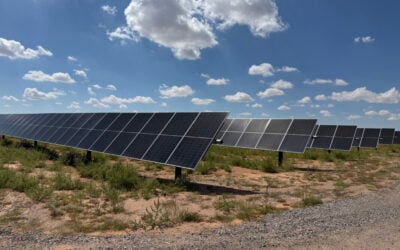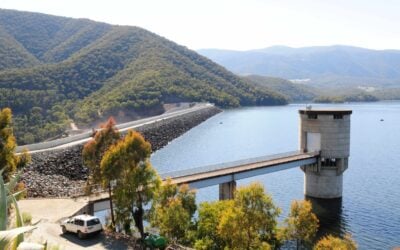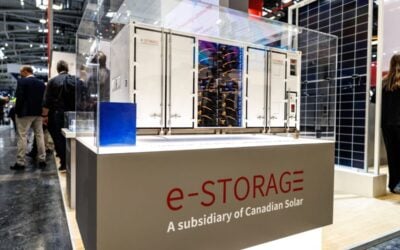
The US Department of Energy’s (DOE’s) Office of Electricity (OE) has announced funding of up to US$15 million for three storage technologies.
Binghamton University will receive US$5 million for the ‘Resilient Energy System based on high-voltage PhosphatE Cell Technology’ (RESPECT) project.
RESPECT demonstrates a bio-mineralised lithium mixed-metal phosphate grid-scale battery energy storage system (BESS) being used to improve energy resiliency at a critical services facility in Endicott, New York.
Binghamton is home to a battery innovation centre led by Professor Stanley Whittingham, one of the inventors of the lithium-ion battery. In a recent Energy-Storage.news webinar sponsored by the New York State Energy Research and Development Agency (NYSERDA), the city and surrounding Broome County’s pivotal roles in the state’s battery storage supply chain were among the topics discussed.
Enjoy 12 months of exclusive analysis
- Regular insight and analysis of the industry’s biggest developments
- In-depth interviews with the industry’s leading figures
- Annual digital subscription to the PV Tech Power journal
- Discounts on Solar Media’s portfolio of events, in-person and virtual
Inlyte Energy will receive US$4.1 million for its ‘Iron and Sodium Long Duration Battery for Multi-day Resilience and Renewable Shifting in High Wildfire Risk Zone’ project.
Inlyte, with its partners will develop and demonstrate an iron and sodium long-duration energy storage (LDES) energy storage system (ESS) to improve energy resiliency at the Alliance Redwoods site in Occidental, California.
In 2023, Inlyte secured seed funding to advance its iron and salt-based battery technology, which boasts high efficiency, long lifespan, ‘competitive’ energy density, excellent safety, and ultra-low cost.
Long Hill Energy Partners will receive US$5 million for its ‘Demonstration of Low-Cost, Organic Quinone Flow Battery’ project.
Long Hill Energy Partners and its team will develop and showcase Quino Energy’s organic quinone flow battery to improve energy resilience at Los Angeles County’s High Desert Regional Health Centre (HDRHC) in Lancaster, California.
Energy-Storage.news reported in April that Quino and Long Hill had been awarded US$10 million by the California Energy Commission (CEC) to support this same project.
This brings the current total for the three projects to US$14.1 million.
The OE highlights these projects for their ability to “support critical facilities and infrastructure during a power outage or other emergency.”
Notably, the OE’s announcement does not note the renewable aspects of these renewable energy projects or the potential jobs they could create, a contrast to similar announcements made from the Biden-Harris administration’s DOE.
Gil Bindewald, principal deputy assistant secretary for electricity, demonstrated this difference by saying of the projects:
“Maintaining critical infrastructure will ensure the nation’s electricity grid remains reliable, resilient and secure as we navigate different emerging threats.”






